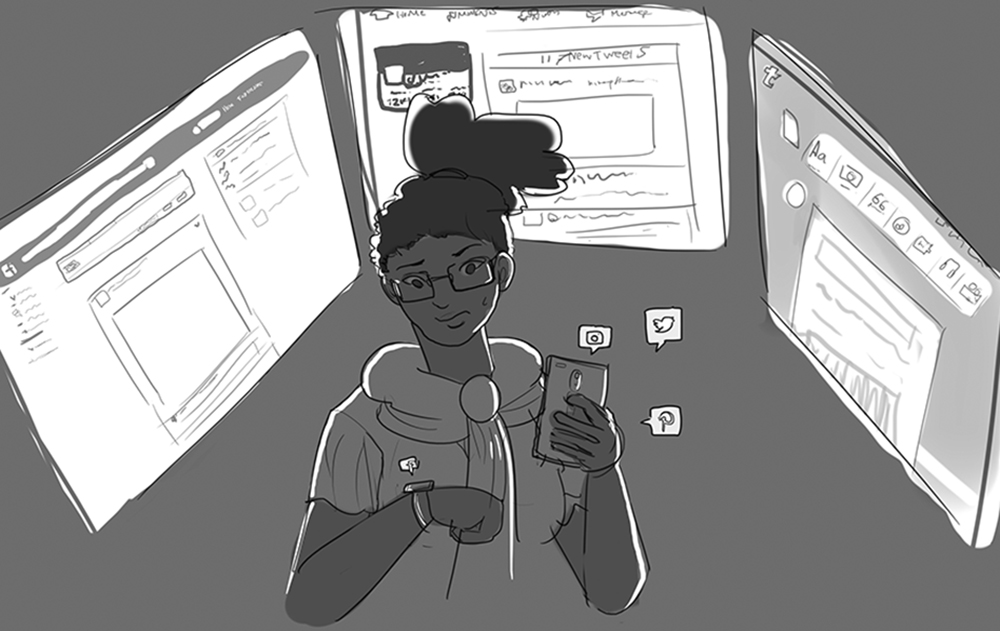Justyna Korczynski | Contributor
Featured illustration: As classes begin, students try to limit their time on social media and find that it’s more difficult than they expected. | Jasmine Wiradharma
Unplugging from social media—even for a day—can feel like losing touch with the world. We can miss out on the latest Facebook videos, the newest trending hashtag on Twitter and major world news developments. From a social standpoint, it can be a risky decision to say no to social media for any period of time. A simple decision to abstain from Snapchat or Facebook chats may have our friends conspiring as to why we didn’t send a Snapchat story and surely thinking that we purposely avoided their Facebook messages.
Nowadays, it has become apparent that the majority of people, especially teens and young adults, spend countless hours per week on social media. Within this demographic, a study conducted in 2008 found that university students have been found to use social media over nine times more than the average population.
In recent years, some people have gone on social media fasts for some much needed self-reflection.
However, as the new school year begins and we vow not to Snap our days away, Facebook stalk our crushes or prowl for memes on Instagram in the hopes of bettering our grades, you may be surprised to learn that there are potential educational benefits for social media sites.
Facebook, specifically, can be used as a general educational tool, allowing a plethora of readily available information accessible by anyone who has internet access. Perhaps not directly intended for school, social media can still provide educational and useful articles if you follow informative Facebook pages like TBH.
A study conducted by the Journal of Nursing Education in 2011 shows that educators can use Facebook technology to advance nursing research, by providing “new opportunities for locating potential research participants and maintaining contact during the research process.”
Facebook usage may also affect the performance of quiet, introverted students. “Self-esteem, personal validation and value are positively affected by the use of Facebook for many users, especially those who have a low self-worth. Among [social networking sites], the use of Facebook in particular has been found to increase users’ sense of personal belonging among [university] students,” found one study by George Konetes.
Students partake in the week-long orientation in preparation for the undergraduate journey that awaits them.
As classes begin, students try to limit their time on social media and find that it’s more difficult than they expected.
Outside of stressful classes, social media as a whole can be a great outlet to relax, talk with friends and allow for exposure to interesting articles and educational tools. The key is to use it wisely and in moderation. Ensure that it doesn’t take up excessive amounts of time during your day—especially during times of procrastination and stress, such as exam season.
The advancement of technology can be truly amazing, while being a bit shocking and worrisome. Social media is a part of our life and we must learn how to use it to our advantage.


